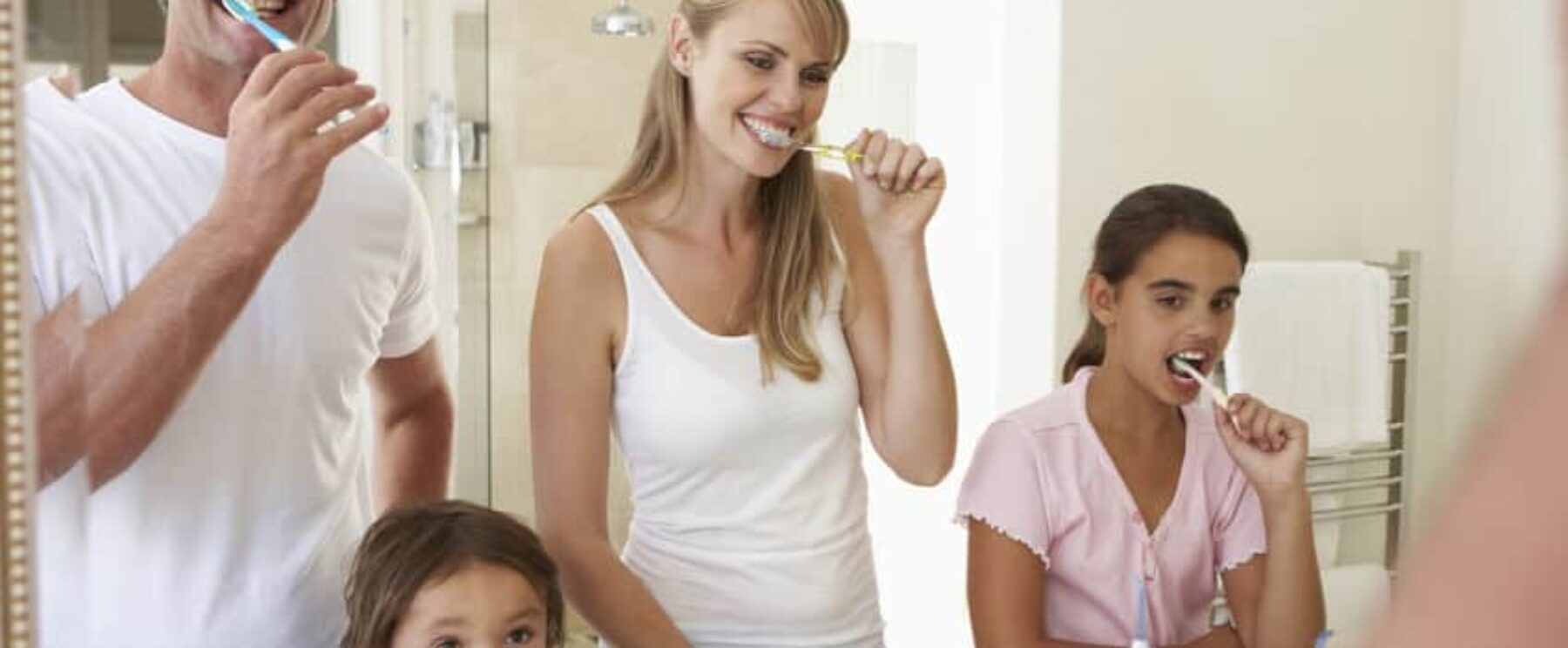
Brushing on a daily basis. This is something which is a given, and as a simple rule, brush 2 times per day for 2 minutes. Additional flossing after brushing your teeth during evenings, at least every other day is recommended. Some dentist’s advice you brush after each meal, that’s not really realistic, so bringing a toothbrush when going out for dinner does not have to cross your mind. The fact that you brush is of importance but also how you brush.
In order to remove debris and dental plaque without contributing to trauma on the gums, some care should be taken while brushing. In general, while using a manual toothbrush, the bristles should be in a 45° angle between gums and teeth. the brushing should be done with circular brushing motion, this is called modified bass technique.
But the major distinction between brushing methods depends on, if you use a electrical or a manual toothbrush. Your age and state of dentition also plays a major role in how you shall brush.
I personally recommend using a soft bristle toothbrush in general, which has the least amount of abrasive effect on the teeth, is also gentle on the gums. Nowadays electric toothbrushes have become popular, sticking to manual might still be the better choice. Due to the electrical toothbrush requiring a precis “one by one” brushing technique, because of the rotational motion of the head and bristles. The bristles are also typically not of the soft verity. Low battery or time limitations, may be an excuse for not properly going over each and every tooth. Like many other things we buy, the instructions are usually left unread.
Sensodyne, Colgate and Oral-B are probably toothpastes you’ve heard dentist recommend, either after clinical visits or during commercials on TV. It’s not that simple, people have different needs, and depending on your individual case the main toothpaste component varies:
• 1000-1500 ppm of fluoride –> patient with no particular complaint.
• Triclosan –> large plaque accumulation, and periodontal disease.
• Herbal extract –> when gums are bleeding, swollen and red.
• Soluble pyrophosphates –> Abundant calculus build up.
• Potassium chloride, Strontium chloride –> hypersensitivity of teeth.
The typical range for dental check-up intervals are 3, 6 or 12 months. If there is a high decay risk or if the oral hygiene is poor, then 3 months could be the option.
A check-up and consultation with a dentist is the best way to find a suitable way to treat, stabilize and maintain a nice oral health!
"I have had the pleasure to be assisted by Dr Alexia. One of the best dentist I have ever met in London. Great service, great work done for me. Highly recommend it!!!I have had the pleasure to be assisted by Dr Alexia. One of the best dentist I have ever met in London. Great service, great work done for me...."
"I have had the pleasure to be assisted by Dr Alexia. One of the best dentist I have ever met in London. Great service, great work done for me. Highly recommend it!!!"
"I have had the pleasure to be assisted by Dr Alexia. One of the best dentist I have ever met in London. Great service, great work done for me. Highly recommend it!!!I have had the pleasure to be assisted by Dr Alexia. One of the best dentist I have ever met in London. Great service, great work done for me...."